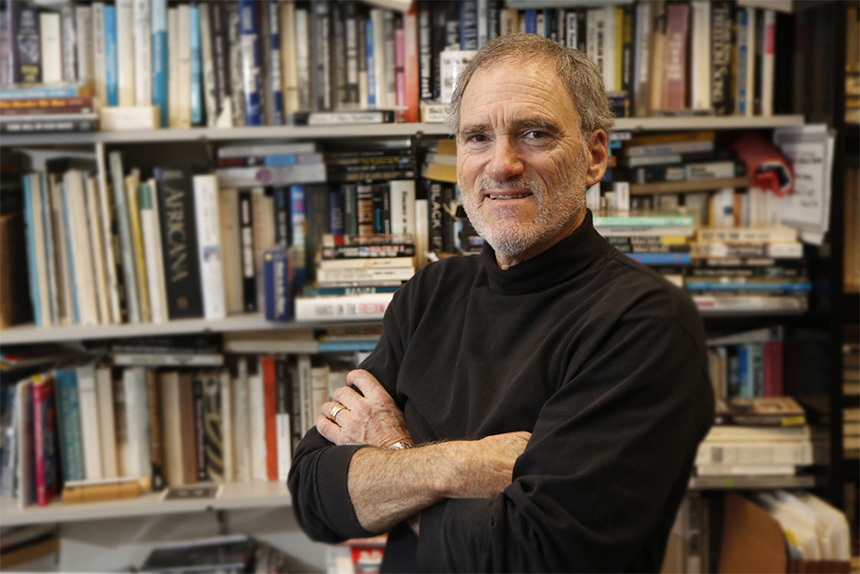Honey to Serve as Radcliffe Institute Fellow
Dr. Michael K. Honey, Haley Endowed Professor of Humanities in the School of Interdisciplinary Arts & Sciences, has been named a fellow of the Radcliffe Institute for Advanced Study at Harvard University.
Dr. Michael Honey has been named a 2020–2021 fellow at the Radcliffe Institute for Advanced Study at Harvard University, joining an impressive class whose work will span the sciences, social sciences, humanities, and arts.

Honey will pursue an individual project in a community dedicated to exploration and inquiry. As a Radcliffe Fellow, Honey will write “They Never Can Jail Us All: A Personal History of Repression, Resistance, and the Freedom Struggle,” tracing his experiences as a conscientious objector to war in the 1960s and an organizer in the Southern freedom movement from 1970 through 1976. Honey will research the newly-accessioned files of Angela Davis in Harvard’s Schlesinger Library, as well as civil liberties and rights records at the Wisconsin Historical Society. He will also use Freedom of Information Act surveillance records of the Federal Bureau of Investigation (FBI). In 1970, it placed him on its “security index” to be arrested, along with thousands of other civil rights and anti-war activists, during a declared national emergency.
“This fellowship class, taking shape amid a devastating pandemic, reflects our conviction that the cross-disciplinary exchange and deep exploration that Radcliffe enables are critically important for Harvard and for the wider world — especially in times like these, when we must confront unprecedented challenges,” said Radcliffe Dean Tomiko Brown-Nagin, who is also a professor of law and of history at Harvard.
“Our fellows will advance human understanding in the sciences, social sciences, and humanities. Their creative work will change how we see the world. And they will pursue solutions to some of the most pressing issues facing our society. Their endeavors will be immeasurably enhanced by the unique intellectual cross-fertilization that takes place at Radcliffe.”
The 2020–2021 fellowship year will be virtual, with the possibility of a residential component, pending decisions on Harvard-wide policies by University leaders and informed by epidemiological models of the spread of COVID-19 in the United States. The acceptance rate for the incoming class was 2.8 percent, from a pool of nearly 1,400 applicants. The group represents six countries and a wide range of disciplines.
Honey has written six acclaimed books on labor and civil rights history, including Martin Luther King, Jr.’s struggles for labor rights and economic justice. He has held fellowships from the Guggenheim and Rockefeller Foundations, Stanford University and the National Endowment for the Humanities. He is the Fred and Dorothy Haley Professor of Humanities and a founding faculty member of the University of Washington Tacoma, teaching ethnic, gender and labor studies and oral history. He served the University of Washington as the Harry Bridges Chair of Labor Studies, served as president of the national Labor and Working-Class History Association, and is a Distinguished Lecturer for the Organization of American Historians. He is also a well-known commentator and writer for popular journals such as “The Nation,” “Time,” and others.
“I am looking forward to conversations with other Radcliffe fellows on America’s history of racism, repression, and its freedom struggles,” said Honey. “UW Tacoma’s Mary Gates Student Fellow Casey Reynolds Wagner is helping me research 800 hundred pages of my FBI files from 1968 through the 1970s. I am grateful to be able to examine a time of political terror against civil rights and anti-war organizers and to write about the freedom movement that helped to overcome it.”
The Radcliffe Institute has awarded more than 900 fellowships since its founding in 1999.
The full list of fellows is online here.



